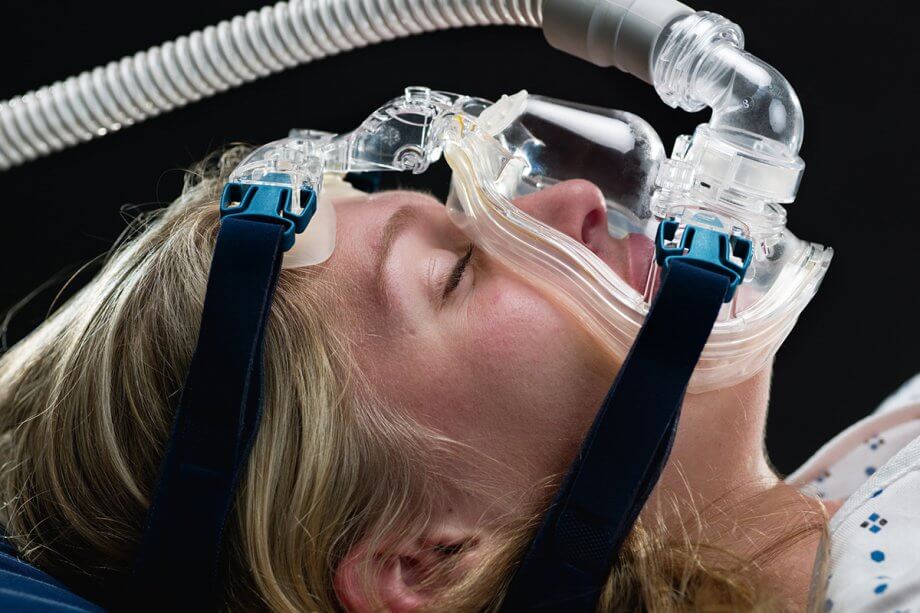Sleep apnea is a disorder that causes breathing problems while sleeping. The most common symptom is loud snoring, but in severe cases it causes the person to stop breathing for seconds or even minutes at a time while sleeping. It results in poor quality sleep and related health issues.
The good news is that there is treatment for sleep apnea, but can it be cured? Treating the symptoms and completely curing the disorder are two different things. Here’s what dental and sleep experts have learned about sleep apnea.
What is Sleep Apnea?
The complete scientific name for the disorder is obstructive sleep apnea. This is because your airway becomes obstructed, or blocked, so that you can’t breathe normally. When you lay down, especially on your back, the soft tissues of your mouth slide back toward your throat and your throat tissues collapse until your airway is obstructed. When it is partially blocked, the air moving over the soft tissues causes vibrations, which is what makes the snoring sound. When the airway becomes completely blocked you’ll stop breathing until your brain registers the lack of oxygen and rouses you enough to move and resume breathing.
What Are the Symptoms of Sleep Apnea?
Common symptoms of sleep apnea include:
- Loud snoring.
- Pauses in breathing while sleeping.
- Waking up out of breath.
- Feeling tired throughout the day.
- Lack of energy.
- Headaches.
- Poor concentration or forgetfulness.
These symptoms can have long term effects on your overall health and wellness. Sleep apnea has been tied to heart disease and diabetes.
How is Sleep Apnea Treated?
The symptoms of sleep apnea can be treated in one of two ways:
- Oral appliance. An oral appliance is a custom made mouth piece you wear over your teeth that positions your jaw in such a way that it prevents the soft tissues of your mouth from sliding back to block your airway.
- CPAP machine. A CPAP (Continuous Positive Airway Pressure) machine consists of a mask worn over your mouth and nose that is connected to a machine that delivers a constant flow of air that keeps your airway open.
Can Sleep Apnea Be Cured?
In order to cure sleep apnea, a permanent change must be made that will put an end to the symptoms. A cure gets to the source of the airway blockage and eliminates it. Cures for sleep apnea include:
- Orthodontic treatment. Orthodontic treatment such as braces or palate expanders move the teeth and even change the shape of the jaw, which can permanently cure sleep apnea.
- Jaw surgery. When the shape of the jaw needs to be significantly changed, jaw surgery may be required. Sometimes jaw surgery can prevent the airway from becoming blocked when lying down.
- Soft tissue surgery. Surgery can be done to remove excess tissue in the throat area that is obstructing your breathing when you sleep.
- Tonsillectomy. Sometimes the tonsils can be enlarged enough that they cause the airway to become blocked. A tonsillectomy (tonsil removal surgery) can permanently cure sleep apnea in some cases.
Who Treats Sleep Apnea?
There are a few different medical specialists who can diagnose and treat sleep apnea:
- Physicians. Your primary care physician may be able to diagnose your sleep apnea and prescribe a CPAP machine to treat your symptoms.
- Dentists. Your general dentist may be able to diagnose your sleep apnea and provide an oral appliance to treat your symptoms.
- Sleep specialists. A sleep specialist diagnoses sleep apnea and may provide a variety of treatment options.
- Orthodontists. Orthodontists can sometimes diagnose sleep apnea and provide orthodontic treatment to adjust the position of the teeth for optimal breathing while sleeping.
- Oral surgeons. An oral surgeon may be able to diagnose your sleep apnea and provide surgical options to reposition your jaw or reduce your throat tissues.
- ENT. An ear, nose, and throat doctor may be able to diagnose your sleep apnea and provide surgical options for treatment such as a tonsillectomy.
Benefits of Seeing a Dentist for Sleep Apnea
Talking to your dentist about your sleep apnea symptoms is a good place to start. If your sleep apnea can be treated with an oral appliance, that is often the easiest, most comfortable, and least invasive option. Minoli & Vijay, DDS PC can provide diagnosis and treatment of sleep apnea in many cases. If for some reason your symptoms require you to see a different specialist, we will make a recommendation accordingly.
Call 212-888-4140 or contact us today to learn more and schedule an appointment.

